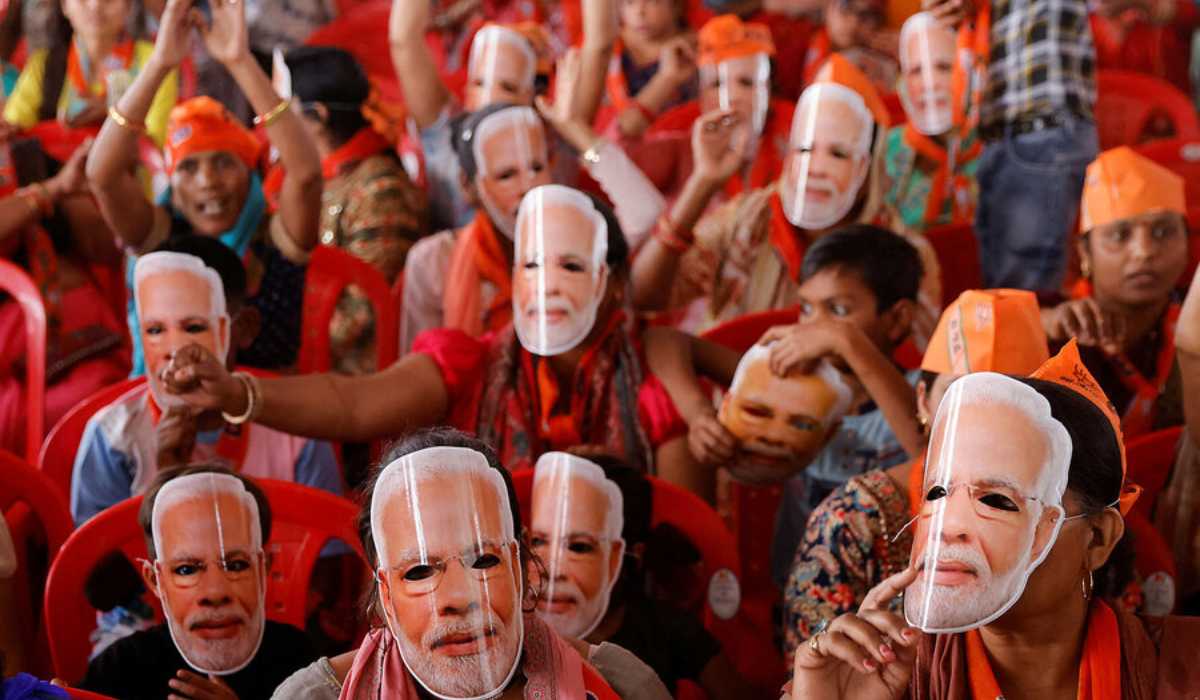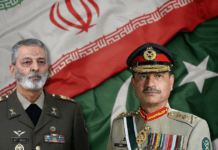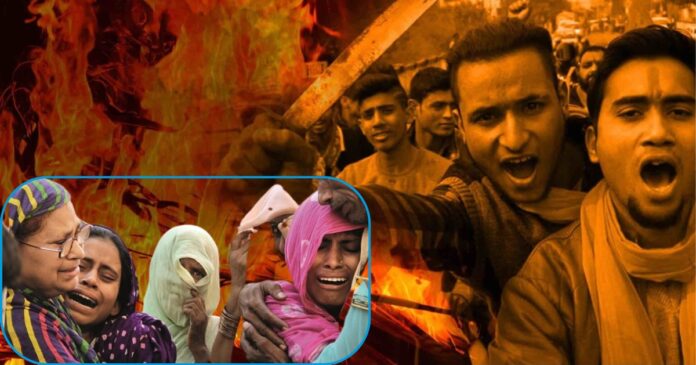In the past few days, something very disturbing has surfaced amidst the ongoing Pak-India tensions. The digital landscape has witnessed an alarming escalation in India’s online hate rhetoric and coordinated online harassment from Indians. Why? Just pure radical fascism.
Social media was once a platform for free expression, but India’s democratic discourse has increasingly morphed it into a space of bigotry and misinformation.
An Online Havoc
Pakistani influencers and online users (many of them women) have been doxxed, threatened with rape and murder, and subjected to relentless abuse in the past few days. All of this has happened simply for voicing an opinion or posting content for their country. Some were told they “deserved” violence. Others were told their entire cities would be “wiped off the map.”
This rise in online hate campaigns, threats to influencers and even incendiary remarks from prominent public figures signals a deeper rot in the country’s socio-political fabric.
The Current Surge: A Disturbing Trend
This isn’t random. It’s systemic. What makes this ecosystem so dangerous is that it’s not spontaneous; it’s strategic. These online trolls are backed, directly or indirectly, by individuals with massive influence, like celebrities, politicians and media personalities. These are the people who either incite or stay conveniently silent when their followers launch attacks. When leaders make subtle threats, when individuals use slurs on livestreams, and when bureaucrats like, share, or amplify hate speech, they are not just participating; they are signalling.
This isn’t “free speech.” It’s weaponised speech. And it’s cowardly.

When Power Fuels Hate
One of the most concerning aspects of India’s online hate ecosystem is the role played by those in positions of power. Political leaders have made veiled or overt threats against Pakistan and its citizens, almost dehumanising them and referring to them as mere “pigs”. When elected representatives or well-known personalities make inflammatory statements on public platforms, it legitimises hate speech and normalises violence.
This normalisation is reinforced by the inaction or selective action of law enforcement and platform moderators.
Social media platforms, despite having millions of Indian users, have consistently failed to act with the urgency or seriousness the situation demands. Reports get ignored. Threats stay up for days. Hate spreads faster than facts. Their so-called “community standards” have proven to be little more than PR statements when the real test comes.
Meanwhile, India’s legal machinery either drags its feet or selectively enforces the law depending on the political leanings of the person being targeted—or the one doing the targeting.
Let’s not kid ourselves. If the state wanted to crack down on digital hate, it could. It chooses not to.
If a politician publicly threatens a community, they should be disqualified. If a celebrity spreads hate, their endorsements should be pulled. If a bureaucrat fans violence, they should be removed from service. If a platform hosts abuse and refuses to act, it should be held legally and financially responsible.
View this post on Instagram
Consequences in the Real World
The online hate ecosystem doesn’t operate in isolation; it spills over into the real world. Lynchings, mob violence, communal riots, and targeted assassinations have all found roots in digital provocations. The psychological toll on individuals targeted by online abuse is immense, with many facing anxiety, depression and in extreme cases, suicidal thoughts.
The threat is not just to individuals but to the democratic ideals of debate, dissent, and diversity. When fear dictates speech, democracy weakens.
Read More: “The Butcher of Gujarat Lives and He is the Prime Minister of India”: A Look at Modi and RSS History
Tackling this complex issue requires a multi-pronged approach:
- Stronger Regulation and Accountability: Social media platforms must be held to higher standards of content moderation, especially in high-risk regions like India. Government regulation should focus on protecting free speech while cracking down on incitement to violence and targeted harassment.
- Legal Reforms: India’s cyber laws need urgent updates to address the evolving nature of digital hate. Swift, transparent investigations and deterrent punishments are essential to curb abuse.
- Political Responsibility: Leaders and celebrities must be held accountable for their words. Political parties need to draw red lines on the use of hate for electoral gains.
- Civil Society and Media Vigilance: NGOs, fact-checkers, and responsible media must continue to expose coordinated hate campaigns and provide platforms for marginalised voices.
- Digital Literacy and Public Awareness: Educating users—especially the youth—about the consequences of online hate and the value of pluralism can foster more responsible digital citizenship.
Time to Act Before it’s Too Late
A Syrian writer once said, “Pakistan is the last line of defense against imperialist Hindutva ideology,” and the events of the last few days have proved it right.
This time, Pakistan succeeded in defending its people, but that doesn’t mean that the disturbing ideology of India’s masses should be ignored. We are safe today, but some Muslims in Gujarat or Bihar are probably paying the price for it as we speak.
We can no longer afford to watch from the sidelines. We need laws with teeth, platforms with principles, and leaders with spines. Until then, the hate will keep spreading—because we let it.
Stay tuned to Brandsynario for latest news and updates





































